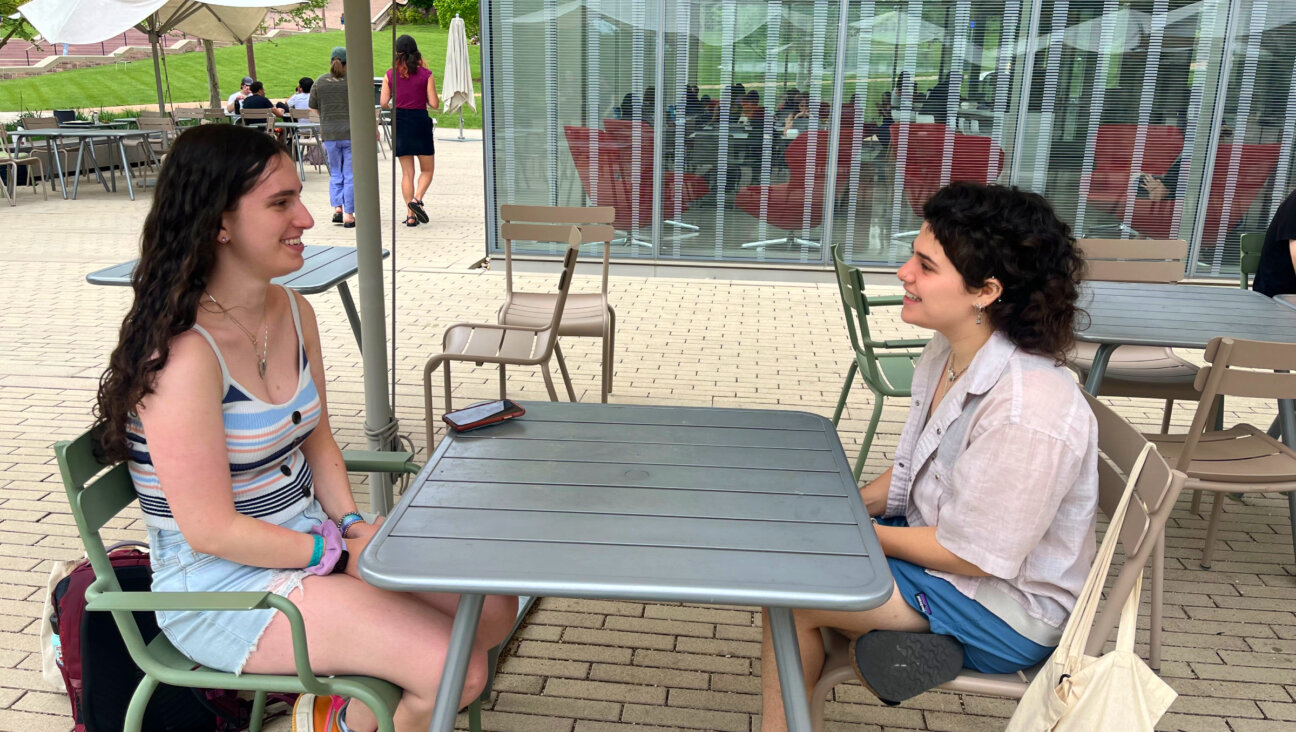Rabbis Vow To Spend $31.50 a Week for Food
Rabbis and cantors across the United States have agreed to spend $31.50 on food and beverages for one week in support of those living on food stamps.
The 2012 Jewish Community Food Stamp Challenge marks the third year that participating clergy have agreed to spend the amount allocated for individuals on SNAP, the Supplemental Nutrition Assistance Program. The clergy also will educate congregants about hunger in the U.S. from now through Thanksgiving.
Hunger and food insecurity are “rarely talked about and frequently misunderstood,” Rabbi Leonard Gordon, co-chair of the challenge, noted in a statement to JTA. This challenge “is a way for rabbis and cantors to make the invisible daily struggles of congregants and neighbors real while demonstrating the Jewish community’s deep commitment to help those in need.”
Rules of the Food Stamp Challenge include keeping receipts and calculating food costs on everything consumed, even if the items already were in the house. Participants also are asked to shun free food, including food at receptions or office coffee.
Those taking the challenge are encouraged to donate the money they normally would have spent on food that week to a local food bank or anti-hunger advocacy organization.
“On a budget of only $1.50 per meal, many SNAP recipients must settle for unsatisfying meals that lack the necessary nutrition and energy to meet the demands of work and family,” according to Abby Leibman, president and CEO of MAZON: A Jewish Response to Hunger.
Jewish organizations involved in the project include the Jewish Council for Public Affairs; MAZON; the Conservative movement’s Rabbinical Assembly; the United Synagogue of Conservative Judaism; the Union for Reform Judaism; the Reform movement’s Central Conference of American Rabbis; the Reconstructionist Rabbinical Association; Uri L’Tzedek; the American Conference of Cantors; and the Cantors Assembly.

I hope you appreciated this article. Before you go, I’d like to ask you to please support the Forward’s award-winning, nonprofit journalism during this critical time.
Now more than ever, American Jews need independent news they can trust, with reporting driven by truth, not ideology. We serve you, not any ideological agenda.
At a time when other newsrooms are closing or cutting back, the Forward has removed its paywall and invested additional resources to report on the ground from Israel and around the U.S. on the impact of the war, rising antisemitism and the protests on college campuses.
Readers like you make it all possible. Support our work by becoming a Forward Member and connect with our journalism and your community.
Make a gift of any size and become a Forward member today. You’ll support our mission to tell the American Jewish story fully and fairly.
— Rachel Fishman Feddersen, Publisher and CEO
Join our mission to tell the Jewish story fully and fairly.
























